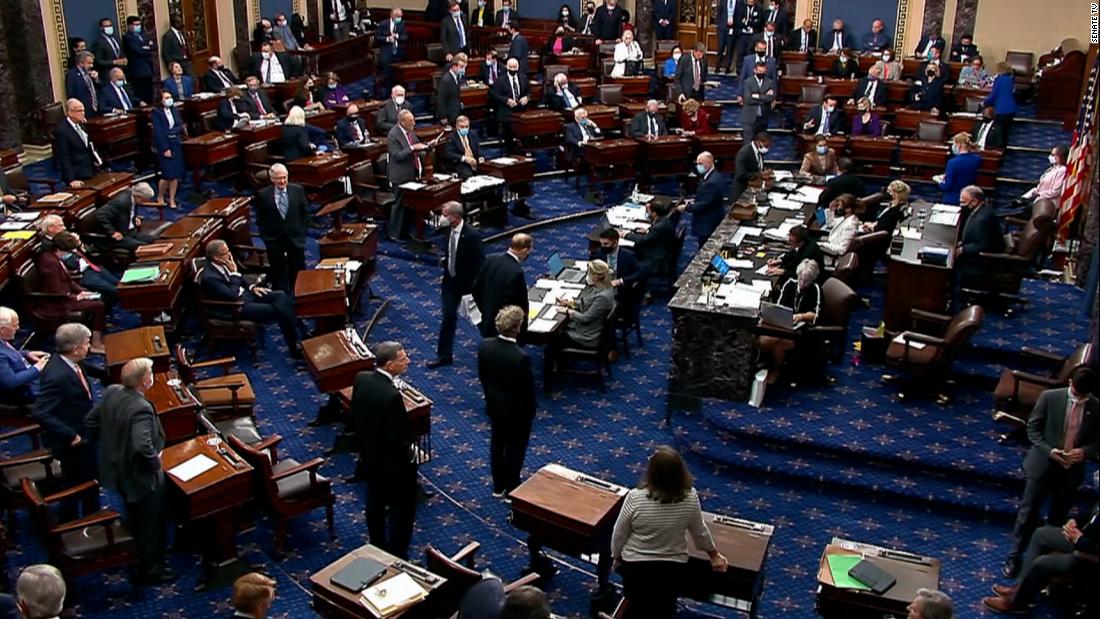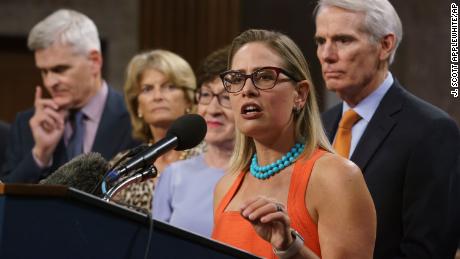Passage of the budget by both chambers will allow Democrats to pass legislation on a party-line vote addressing health care, aid for families and more
The Democratic-controlled House must next take up and pass the budget resolution. Majority Leader Steny Hoyer sent a letter to colleagues Tuesday saying the chamber planned to return the week of August 23 to consider the budget resolution.
Passage of the budget resolution by both chambers will unlock the ability for Democrats to use a process known as budget reconciliation to pass legislation on a party-line vote addressing health care, aid for families, the climate crisis and more. Tuesday’s vote is only the first step in what will be a lengthy process. The resolution needs to be approved by both chambers before Democrats can move on to the reconciliation plan, which still must be drafted and will be considered in the fall.
Democrats will need to put together the far-reaching legislative package in such a way so as to ensure the backing of every Senate Democrat from the moderates to the progressives. Senate Majority Leader Chuck Schumer cannot afford to lose a single vote within his caucus in the 50-50 partisan split chamber, where Vice President Kamala Harris can break ties.
The effort to keep every Democrat in line will put leadership to the test, and there are already signs of the major challenge ahead.
Democrats will also be subject to constraints on what they can include under the budget reconciliation process. Provisions have to directly impact the budget, and the Senate parliamentarian may rule that certain priorities cannot be included as a result. The parliamentarian is responsible for advising the chamber on how its rules, protocols and precedents operate.
The budget resolution, which Senate Democrats formally unveiled on Monday, serves as a blueprint for what they expect to include in the far-reaching package and it sets a target date of September 15 for committees to submit their reconciliation legislation.
Congressional Democrats are pursuing a dual-track strategy to passing major infrastructure and economic legislation and have worked to advance both bipartisan and partisan packages. Earlier on Tuesday, the Senate passed a $1.2 trillion bipartisan infrastructure bill following painstaking and drawn-out negotiations between a bipartisan group of senators and the Biden administration. The push to pass a separate legislative package on a party-line vote will allow Democrats to enact key Biden priorities left out of the bipartisan deal that go beyond the traditional definition of physical infrastructure.
Schumer has pushed back against GOP criticism of the high price tag of the package, saying on Monday, “We plan to pay for this package by making the wealthy pay their fair share.”
“The Democratic budget will be the most significant legislation for American families since the era of the New Deal and the Great Society. It is big, bold change. The kind of change America thirsts for,” he said.
Schumer argued that the core of Democrats’ sweeping plan is “restoring the middle class in the 21st century and giving more Americans the opportunity to get there.”
![]()






